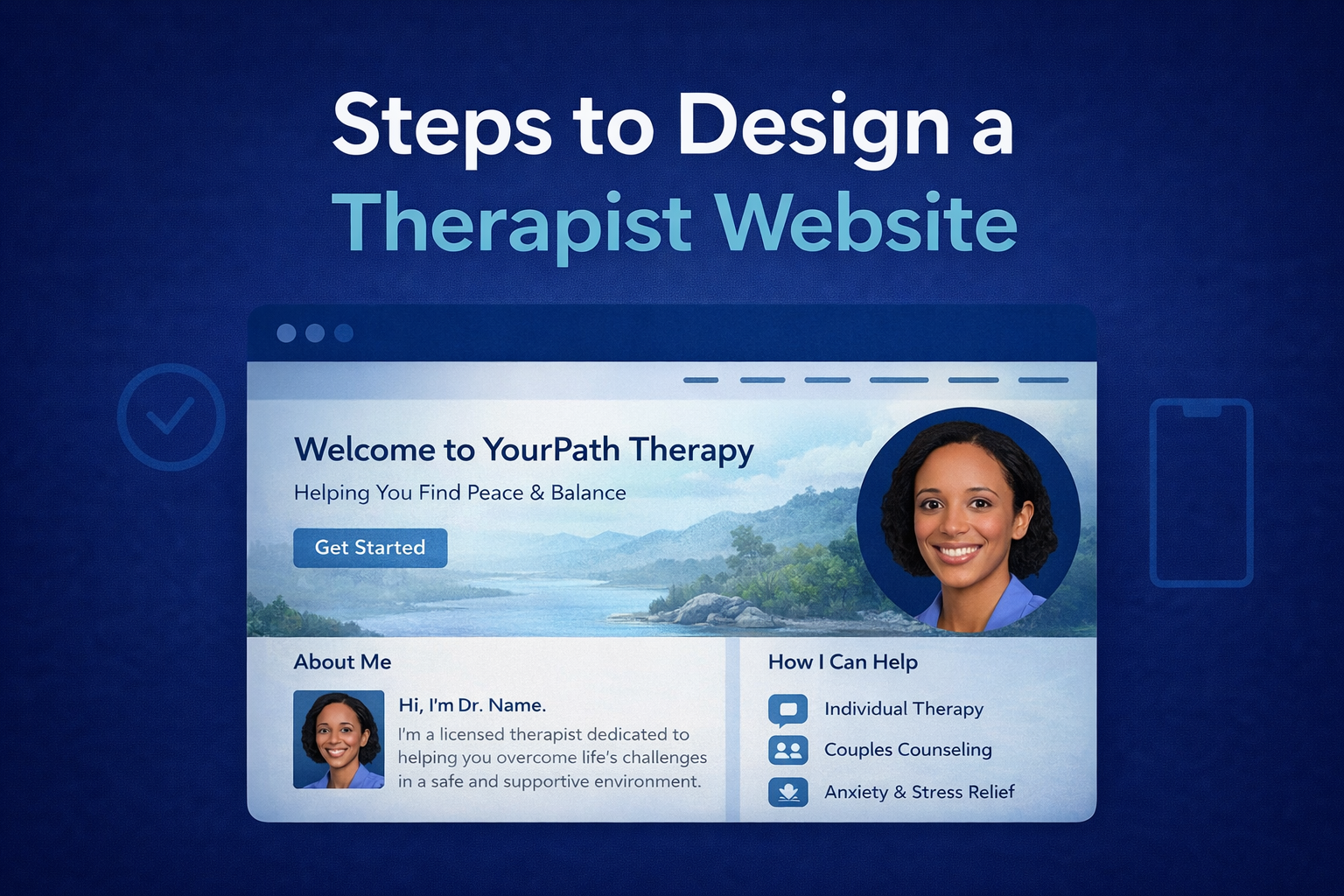The Impact of SEO on Mental Health Practices
SEO for mental health is a powerful tool to amplify your reach in 2025. By optimizing your website, you can connect with clients searching for services like “therapy for anxiety” or “counselor near me.” This not only grows your practice but also helps more people access vital mental health support.
Understanding SEO for Mental Health
SEO (Search Engine Optimization) enhances your website’s ranking on search engines. For mental health professionals, it means appearing when clients seek therapy services. It’s about being visible where your expertise is needed most.
Google’s 2025 updates prioritize expertise, trustworthiness, and user-focused content. Effective SEO ensures your practice stands out in a competitive digital landscape, driving client inquiries.
Starting with a Comprehensive SEO Audit
An SEO audit identifies areas for improvement. Use tools like Google Search Console or SEMrush to assess:
- Site Health: Check for indexing errors or broken links.
- Performance: Ensure fast load times for better user experience.
- Content Gaps: Spot missing keywords or outdated pages.
Conduct audits every 3-4 months to stay ahead. For speed tips, see our guide to optimizing therapist website speed.
Targeting High-Impact Keywords
Keywords connect you with clients. Focus on long-tail phrases like “online therapy for depression in [city]” for high intent and low competition. Use tools like Google Keyword Planner or AnswerThePublic to find relevant queries.
Incorporate related terms, such as “mental health support,” naturally. Avoid overstuffing to keep content authentic. Explore our SEO strategies for therapists.
Optimizing On-Page Elements
On-page SEO boosts individual page rankings. Key steps include:
- Title Tags: Use “SEO for mental health” or location-specific terms.
- Meta Descriptions: Write compelling summaries under 160 characters.
- Headers: Structure with H2/H3 and keywords.
- Content: Create empathetic, client-focused pages.
Ensure mobile-friendliness and HIPAA-compliant forms. Check our HIPAA-compliant website guide.
Excelling in Local SEO
Local SEO targets clients in your area. Optimize your Google Business Profile with:
- Accurate contact details and hours.
- Professional photos of your practice.
- Client reviews to enhance trust.
Use local keywords like “therapist in [neighborhood].” Respond to reviews promptly. Learn more in our local SEO guide for therapists.
Creating Impactful Content
Content builds trust and authority. Publish blogs on topics like “managing stress” or “benefits of counseling.” Use formats like:
- Practical guides.
- Anonymized success stories.
- Short videos or infographics.
Post weekly to stay relevant. Promote via email and social media. See our content marketing ideas for therapists.
Securing Quality Backlinks
Backlinks from trusted sites boost your credibility. Target:
- Health directories.
- Local wellness blogs.
- Professional associations.
Guest posting or collaborations with non-competing therapists can earn links. Focus on quality over quantity. Track with Moz or Ahrefs. Read our guide to building a strong online presence.
SEO Strategies for Mental Health Professionals
| Strategy | Objective | Tools/Tips | Outcome |
|---|---|---|---|
| Keyword Optimization | Reach client searches | Google Keyword Planner, Ahrefs | Higher rankings, more traffic |
| Local SEO | Connect with local clients | Google Business Profile, Moz Local | Increased local inquiries |
| Content Creation | Establish expertise | WordPress, Canva | Engaged clients, better SEO |
| Technical SEO | Enhance site performance | PageSpeed Insights, Screaming Frog | Improved UX, higher rankings |
| Backlink Building | Increase authority | Moz, guest blogging | Stronger credibility |
Voice Search Optimization for 2025
Voice searches like “find a therapist near me for anxiety” are surging. Optimize for conversational phrases and FAQs to capture featured snippets. Ensure mobile optimization for voice users.
AI tools can identify trends, but human oversight ensures accuracy. Dive into our voice search SEO guide.
Tracking Your SEO Progress
Monitor performance with Google Analytics and Search Console. Key metrics include:
- Organic Traffic: Visitors from search engines.
- Bounce Rate: High rates signal irrelevant content.
- Conversions: Inquiries or bookings.
Review data monthly to adjust strategies. Low conversions may need better calls-to-action or page redesigns.
Ethical SEO Practices
Ethics are vital in mental health SEO. Avoid misleading claims or manipulative tactics. Ensure HIPAA compliance for digital tools, especially forms and teletherapy platforms.
Focus on authentic, client-centered content to build trust and align with Google’s guidelines.
SEO Success Stories
One therapist used local SEO to boost inquiries by 55% in six months. Another ranked for niche terms like “trauma therapy,” attracting specialized clients.
These wins show SEO’s potential to help more people. Apply tailored strategies for similar results.
Addressing SEO Challenges
Common hurdles include algorithm updates or limited budgets. Use free tools like Google Analytics to start. Refresh content regularly to stay relevant.
For complex issues, like technical SEO or HIPAA compliance, consider expert support. Consistency drives success.
Future-Proofing Your SEO
Stay ahead of 2025 trends like AI-driven search or interactive content. Create evergreen content, like mental health guides, that adapts to client needs.
Engage through webinars or forums to build community. Stay informed via industry blogs to keep your strategy sharp.
Conclusion
SEO for mental health is your key to helping more people in 2025. By optimizing keywords, excelling locally, and creating valuable content, you can expand your reach and impact.
Start today to boost your practice’s visibility. For expert guidance, contact Mental Health IT Solutions.







